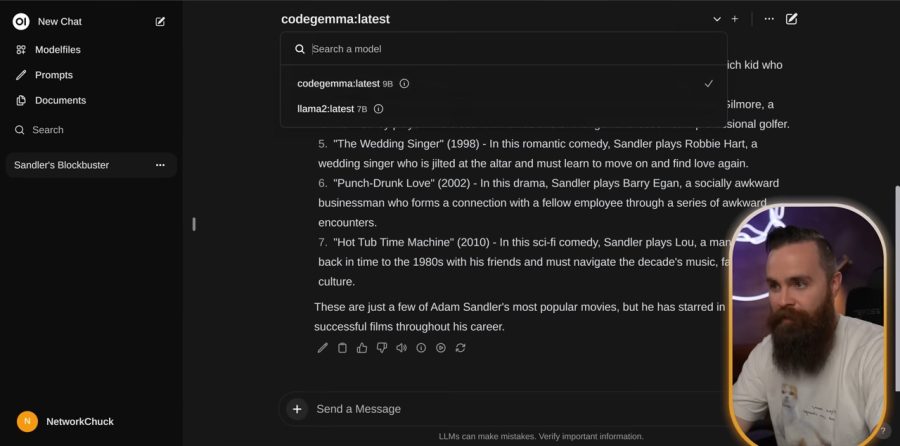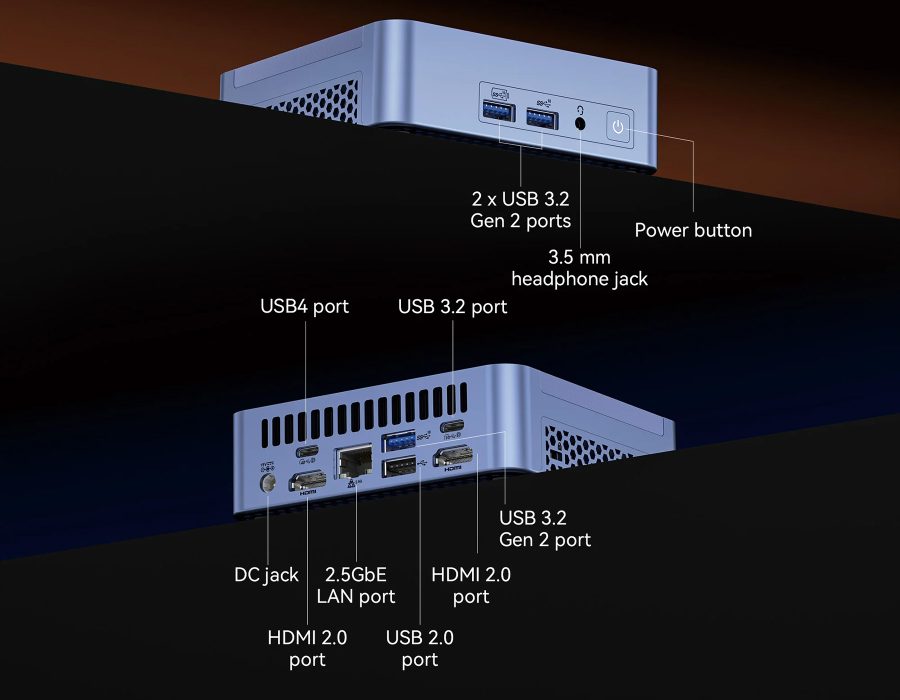The Geekom AX8 Pro mini PC might be your perfect private home AI server

As we get more and more comfortable with just doling out everything into our phones and computers combined with the rise of AI and the likes of ChatGPT are greedily hoovering up everything we type into them.
What if we could stop that – maybe we could even cut one monthly subscription out of our expenses. Sound cool? Good, because today we are turning a tiny box of electronics from Geekom into your very own, locally hosted AI assistant.
We are all sick of data leaks from big companies seeping our personal data out via hacks. It’s easy to lose track of how many times you have had that ‘change your password’ email from an organization that hasn’t looked after your private information properly and all your info ending up being traded for Bitcoin on the dark web with millions of other unlucky folks.
If it’s not being stolen you then have the problem of the companies themselves harvesting every little detail about you and trading it for profit to all and sundry – you did read that 120-page T&Cs document before you pressed Sign Up didn’t you?
I like many out there, am at my wit’s end of all these shenanigans so today we are going to privatize at least one corner of our lives with the help of a little mini PC from Geekom.
Creating our own local ‘ChatGPT’ HardwareFirst up we are going to need a computer. Anything will do but the better, faster and, especially if it has a decent GPU in it will get things happening faster. But technically we can try it on anything. I’ve had this great little mini PC – the AX8 Pro from Geekom on my desk waiting for a suitable project- so it’s time to put it to good use and take some control back
The AX8 Pro has a powerful AMD Ryzen 9 8945HS in it for its brain, 32GB of DDR5 RAM, and a 2TB SSD. Now even though it is a mini PC without an nVidia GPU, we are still going to be more than alright here and we can set this little PC up as the brain of our household. Ultimately it is going to be running all my home automation, as well as turning it into a Steam Machine to play games on as easy as I can on my Steam Deck. It’s quite the little box, I love it and it’s time to put it to work.
You can pick one up from Geekom here, or check out any of the other great models they have available.
Now first up, massive kudos to NetworkChuck on YouTube who taught me how to do this. Subscribe to his channel for more great stuff.
There is literally no advantage to me walking you through it hand in hand as Chuck will do it better so let’s have a breakdown of what I have done here and how it works on the AX8 Pro and you can watch Chuck’s video here.
The whole thing literally takes about 20 minutes to get sorted and a lot of that time is waiting for downloads.

When it has finished, say hello to your new personal AI assistant that nobody is tracking.
Using a combination of the pre-installed Windows 11 that the AX-8 Pro comes with and Docker running in the Linux subsystem, in less than an hour I now have a box, a little bigger than my mouse, that is hosting my own LLM on my own network.
The process in the video above installs Ollama, an LLM such as one from Meta or Google and OpenWebUI and I now have the AX8-Pro on my network accessible for anybody to log into and use for AI. I can even set it up with parameters for my kids so it can help them with their homework but not let them cheat.
A standard question to my LLM – I chose to install Llama 3.1 from Meta spits back a response in mere seconds. It feels like magic. I haven’t done it yet but I will be installing Stable Diffusion as well so the Geekom hardware can generate images for me too.
All of this is hosted locally. Nobody is getting my details and nobody is training anything off what I do.
The AX8-Pro is a hugely impressive little box of tricks that could easily be put to use as a gaming device (if you temper your expectations to medium settings) or is more than powerful enough for any office tasks you might want to throw at it.
Indeed, both of those probably seem wasteful which is why I chose to do something a bit more unique with it. The CPU and RAM were just asking to be pushed a little further than merely playing a substandard version of GTAV or opening Excel spreadsheets.

Mini PCs have come such a long way in a short period of time and Geekom is leading the way with some super0smart little boxes that pack enough punch to either replace your work desktop or be employed in useful and fun projects such as this one.
With USB4 support to add an external GPU the AX8 Pro, while certainly not the cheapest – you could pay around $1000 for the top model (although if you use the code AX8Readwrite at checkout you will get 5% off the price right now) – the bang you get for your buck is next level, even if you are thinking of a mid-range gaming option that could be as portable as you like?
If you travel a lot and have access to regular hotel room TVs, just pack a HDMI cable and take the AX8 Pro with you rather than a laptop.
With a fine array of connectivity options you can throw pretty much everything at this It’s also a fair bit smaller than my other mini PC from Minisforum and comes in a lovely blue case. Gone are the days when your only option for a powerful PC was a desktop or a laptop that weighed as much as a large dog. Mini PCs are the future and Geekom, with is AX8 Pro is currently right up there with the best of them right now.
AX8 Pro features- AMD Ryzen
 9 8945HS or Ryzen
9 8945HS or Ryzen 7 8845HS.
7 8845HS. - AMD Radeon
 Graphics 780M.
Graphics 780M. - Dual-channel DDR5 5600MT/s, up to 64GB.
- M.2 2280 PCIe Gen 4 x 4 SSD, up to 2TB.
- 2.5G Ethernet, Wi-Fi 6E, and Bluetooth® 5.2.
The post The Geekom AX8 Pro mini PC might be your perfect private home AI server appeared first on ReadWrite.
